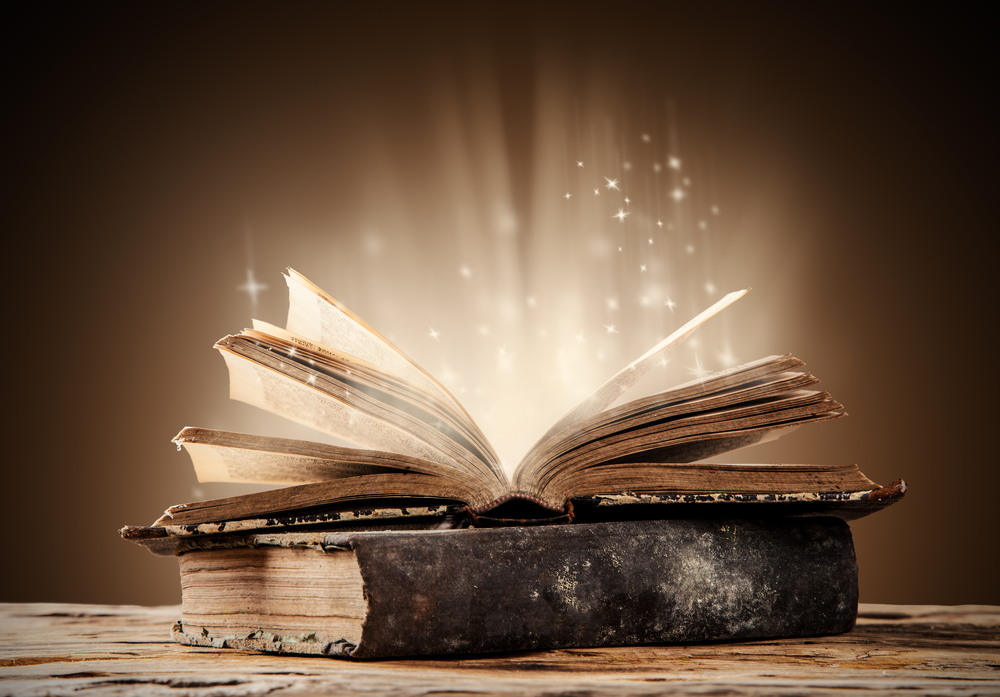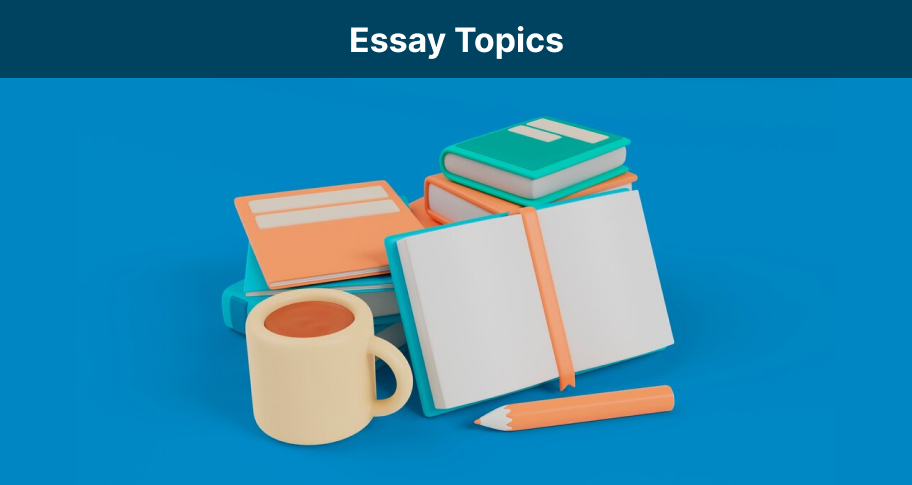Introduction
Writing the perfect book report shouldn’t be as daunting as it sounds. With the right help, you can do it in no time at all. In just four easy steps we’ll show you how. First, let’s lay the groundwork and cover some basics—like, what is a book report? What’s the difference between a book report and a book review? And what kind of template or outline would you use? We’ll give you all that and more. Let’s get going!
What is a Book Report
In one sense, the best way to understand a book report is to understand what it is not. A book report is not a critical analysis. It is not an exhaustive examination. It is not an evaluation or a synthesis of scholarly research regarding the book’s merits or intentions. A book report is quite literally a report of what the book is—i.e., an objective report. Like any report, you are sticking to the facts.
So, what facts? Facts like: the title, the author, the year of publication, the genre, the plot, the characters, and the themes. The book report is basically a summary of everything about the book. It describes the book from an objective point of view, as impartially as possible.
Difference between a Book Report and a Book Review
It’s easy to confuse a book report for a book review. After all, they sound similar. But they are really quite different.
A book report is informational. A book review is critical.
A book report focuses on summarizing the book’s plot. It may describe the characters, the setting, the author’s style of writing, where the book fits within a particular genre, what the author does in the book that resonates with or departs from what he has done in the past. In other words, the book report tells the facts. One can imagine the reader being a jury, and the book report is the lawyer telling the jury everything the book has done. Subjective arguments or criticisms are not admissible. Just the facts, and nothing but the facts.
A book review is much more than a book report. The review analyzes, criticizes, reflects on and evaluates the merits of the book. It can apply any theoretical perspective it wants to draw out an argument or present the book in a different light. The review is more subjective in that sense; it is not about reporting the facts but rather about interpreting them. The review is just that—an interpretation of the book. It can discuss the strengths and/or weaknesses of the book. The report, however, is a presentation of the facts of the book. It does not weigh them or judge them; it merely presents them without commentary.
Now, with that said, it is important to remember that a book report does allow one the space to offer one’s own personal response to the book. This is usually added at the end of the report and should only be a small section in relation to the rest of the review. The personal reflection is not the main point of the book report. It is rather a kind of add-on where the report opens itself up a bit to allow some review to get in. Not much—just a little. Otherwise, the report risks turning into a review—and that is not what should happen!
Book Report Template
A book report template is simply a standard approach to composing your report. Here is an example of what that might look like, using To Kill a Mockingbird.
Title: To Kill a Mockingbird
Author: Harper Lee
Published: 1960
Genre: Southern Gothic, Bildungsroman (Coming-of-Age), Courtroom Drama
Summary
To Kill a Mockingbird is set in the town of Maycomb, Alabama, during the Great Depression. The story is narrated by Scout Finch, a young girl, and follows her and her brother Jem as they confront issues of morality, honor, justice/injustice, racism, fear, and prejudice in their own community. Their father, Atticus Finch, is for all intents and purposes a noble man who represents the moral backbone of the story: he is an honest lawyer who is appointed to defend Tom Robinson, a Black man falsely accused of raping a white woman, Mayella Ewell. The trial exposes some of the flaws of the people of the town. Finch does a stand-up job of defending the innocent Tom, but in spite of the clear evidence showing Tom’s innocence, he is still convicted. Some justice is done, however, in the end, as the true nature of Tom’s accuser is revealed—unfortunately it is a bloody ending. Meanwhile, Scout and Jem also wrestle with their fascination and fear of their reclusive neighbor, Boo Radley, who ultimately becomes an unexpected protector and savior of the children.
Characters
-
- Scout Finch: The young, spirited narrator of the story.
- Jem Finch: Scout’s older brother, who shares in her adventures.
- Atticus Finch: Their father, a lawyer with a strong sense of justice and what is right.
- Tom Robinson: The black man unjustly accused of rape.
- Boo Radley: The mysterious and reclusive neighbor.
- Mayella Ewell: The white woman who falsely accuses Tom Robinson.
- Bob Ewell: Mayella’s racist and abusive father.
Themes
The novel focuses on themes of growing up, morality, racism, justice, and the mystery of human nature. It could be called the original anti-cancel culture novel, as it deals ultimately with questions of empathy and understanding.
Writing Style
Harper Lee uses a first-person narrative style: the story is seen and told through the eyes of the young girl Scout. This perspective gives the story a layer of innocence, authenticity, novelty, and sincerity. It also opens the door for mature reflections on serious social issues thanks to insights given by Scout’s wise father Atticus. The Southern Gothic genre is evident in the setting and the exploration of social issues, the suspense, the violence, and the threatening issues underlying the plot.
Personal Reflection
I found this book to be a very good and a very powerful exploration of morality and justice, full of suspense and examples of good character. Atticus Finch stands out as a just man doing good work and teaching good lessons. The other characters are also well-developed, and the narrative style is effective in bringing together all the different genres. The novel basically asks readers to reflect on their own lives and try to live to a high standard.
Conclusion
In conclusion, To Kill a Mockingbird is a modern classic and a novel that is as surprising and relevant today as it was some sixty years ago when it was first published. As the saying goes, the more things change, the more they stay the same. The fact that this novel still feels powerful even though generations have passed indicates that the issues it touches on are still very much in play today. Plus, Harper Lee’s masterful prose, plotting, insight, and characters make this a must-read novel for all adolescent and adult readers.
View 120,000+ High Quality Essay Examples
Learn-by-example to improve your academic writing
Book Report Outline
A basic book report outline can also help you with your composition. Let’s look at an example using the book 1984 by George Orwell.
I. Introduction
a. Identify the author, the book, the year of publication, and the plot.
b. Identify the genre: political/social satire; dystopian fiction
c. Identify the main themes: totalitarianism and loss of free will.
d. Identify the concepts: War is Peace; newspeak; doublethink.
e. State the thesis—i.e., the main point of the review.
II. Summary
a. Setting
i. Oceania
ii. Inside and Outside the Party
b. Main Characters
i. Winston Smith—hero who questions the Party line and dares to oppose it, only to be crushed into subservience in the end
ii. O’Brien—the seemingly well-meaning high-ranking Party member who lures the rebel lovers Winston and Julia back into the Party line
iii. Julia—Winston’s love interest
iv. Big Brother—the totalitarian government that spies on all, twists the meaning of words, and rewrites history to its purposes
v. Emmanuel Goldstein—the mythical enemy of Oceania whose existence is used to justify the Party’s authoritarianism and totalitarianism
c. Plot
i. Winston begins to doubt the Party line
ii. He breaks with Party orthodoxy
iii. He finds a kindred spirit in Julia and they begin a romance
iv. The discovery a world outside the controls of Big Brother—a world where nature, authenticity, beauty, and harmony still exist
v. Winston and Julia are betrayed by O’Brien and tortured into submission
vii. Winston
III. Themes
a. Totalitarianism—Big Brother represents the totalitarianism of the novel
b. Loss of free will—Winston breaks free from Big Brother, but comes up empty in the end because he has nothing stronger than the Party with which to combat O’Brien
IV. Concepts
a. War is Peace—a motto of the Party and an example of how Big Brother subverts common sense by promoting falsehood as truth
b. Newspeak—the Party’s language, which denies reality by lying about what words mean
c. Doublethink—when the Party’s indoctrination is so successful that one can hold two simultaneously contradictory thoughts in one’s head without trouble
V. Personal Reflection
a. Great book—a bit difficult to read at times—but very solid in terms of concepts that reflect the modern world
b. Too close to reality in some ways
VI. Conclusion
a. Reiterate the main points
b. What is the legacy of the book?
c. Do you recommend it?

How to Write a Book Report (4 steps)
Step 1
Before you start writing the book report, you need to read the book carefully and attentively. As you read, take notes on important details such as the main characters, setting, key events, and any significant themes or symbols. Pay attention to your own reactions to the book and any questions that you may have as you read. This preparatory step is essential as it provides the foundation for your book report. You will use the notes you take during this step to write the report.
Step 2
Once you have finished reading the book and have taken thorough notes, it is time to start organizing your thoughts. Create an outline to structure your report like the one in the example above. Make sure you over all the necessary components. A typical book report includes information about the book: summary of the plot, main characters, themes, writing style, genre, author, and so on. The facts! The best way to organize them is to create an introduction, a body, and a conclusion. In the introduction, state your purpose. In the body, stick to the main points—summary, characters, themes, etc. In the conclusion, restate the purpose in new words and give your own personal recommendation.
Step 3
Time to write the report! With your notes and outline in hand, start writing. Follow the structure of your outline, so that every section flows logically to the next. Use clear and concise language; use transitional sentences; avoid slang and casual language; and remember to be as objective as possible—no personal opinions or interpretations. Save that for the personal reflection at the end. It is also good practice to give specific examples from the book to support your report.
Step 4
Edit and revise. This is one of the most important steps, and unfortunately it is one that a lot of people avoid. Just because you have written a first draft does not mean you are done. Now you have to make sure it is devoid of mistakes. Read over it twice, checking grammar, punctuation, style, and accuracy. Make sure everything you have written is on topic and valid. Correct any mistakes. If you’re unsure, get a second opinion from someone who can help.
Book Report Example
Title: Fahrenheit 451
Author: Ray Bradbury
Published: 1953
Genre: Dystopian Fiction; Science-Fiction
Introduction
Fahrenheit 451 is a mid-20th century science-fiction dystopian novel written by Ray Bradbury. The setting is a future society where books are banned and “firemen” don’t put out fires—they start them. Their job is to burn unlawful hoarding of books. The reason? The old ways, wisdom, and knowledge of the Old World is deemed dangerous by the powers that be. In other words, the world is upside down; common sense is uncommon, and truth is oppressed. The hero of the book is Guy Montag. Like Winston Smith in Orwell’s 1984, Montag begins to question the orthodoxy of the regime in power. Then he steps out of line. The result is a total change in life direction. This book report will summarize the plot, identify the characters and themes of the novel, and provide a recommendation.
Summary
The novel opens with Guy Montag happily burning books as part of his job as a fireman. However, his contentment is disrupted when he meets his new neighbor, Clarisse McClellan, a young woman who opens his eyes to the beauty of nature. She opens a door for Montag that he did not know existed.
Guy becomes disillusioned with his work and begins to collect books and hide them in his home. His wife, Mildred, is obsessed with interactive television and is indifferent to Montag’s concerns. Montag contacts a former English professor named Faber for help in understanding the books he has collected.
Montag’s life unravels when his wife reports him, and he is forced to burn his own house down. In a fit of rage, he also kills his boss, Captain Beatty, with a flamethrower. Montag becomes a fugitive, on the run from the regime’s Mechanical Hound and the authorities.
In the end, Montag escapes the oppressive city and finds a group of friends who are like him: they are led by a man named Granger. They welcome him, and he learns about their plan to preserve books by memorizing their contents. The novel closes with Montag looking forward to a better future where the Old World wisdom and art is honored and restored.
Themes, Genre, and Style
One of the themes of the book is censorship; but if one looks more closely one sees that dehumanization is actually the bigger theme. The book is about what it means to be disconnected from society, to live vicariously through TV, and to be so denatured that the natural world seems abhorrent. The novel criticizes the isolating effects of technology, as shown by Mildred’s obsession with her TV screens.
Bradbury uses an easy-to-read literary style within the science-fiction dystopian genre to paint a concerning view of the here and now. The book reads as a warning about where society is heading if it continues to censor anyone who clings to the old ways in the face of the “progress” pushed by the regime.
Conclusion
Fahrenheit 451 is a modern classic—a great book that I whole-heartedly recommend. It is a terrific reminder of what we have and what we can lose if we fail to take care of our literary heritage. It is not just the knowledge, beauty, wisdom and art of these books that might be lost; it is also our own humanity.
Conclusion
There! At last, you should have a really good idea of how to write the perfect book report. If you follow these recommendations, that work you may have been putting off might now just be able to basically write itself. Trust us, we’ve been doing this for years! Stick to our steps, and you won’t have any further difficulties when it comes to your next book report. Happy writing…





